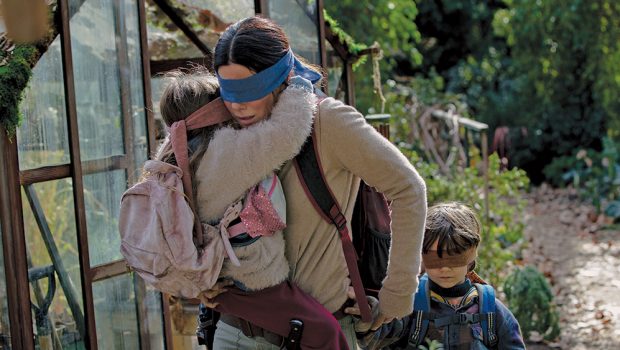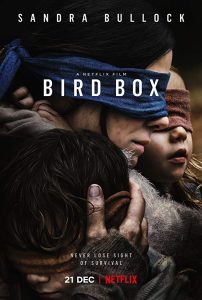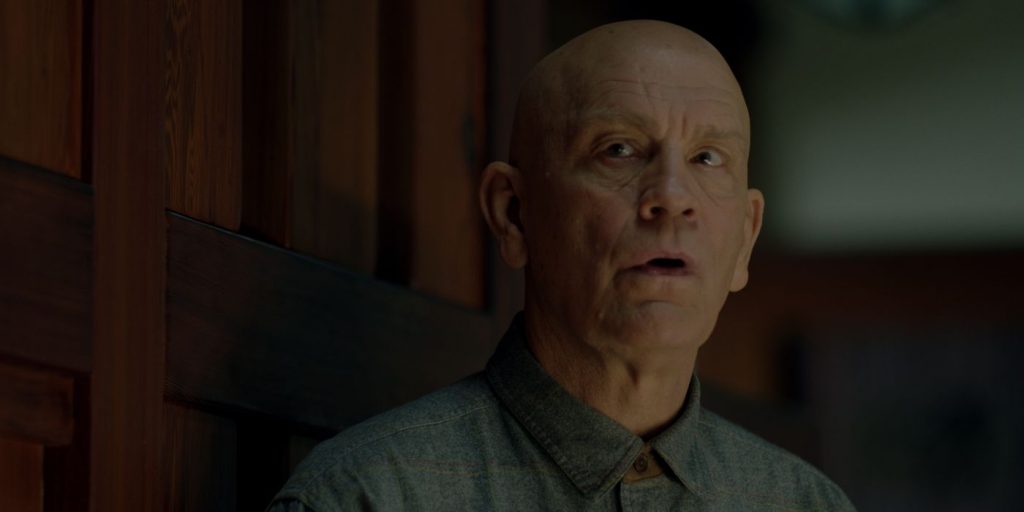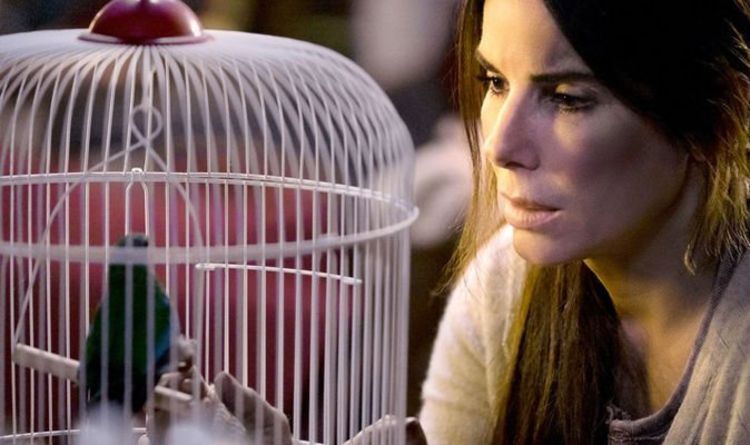“Bird Box” Explained
Over the past 2 weeks, I’ve seen a lot of hype about “Bird Box” and so I decided to add my two cents. Reviews which suggest that the film is about an underlying theme of people turning a blind eye to racism or suicide both popped up in my feed on Facebook and I couldn’t help but chuckle a snarky snort of cynicism. After seeing “Bird Box”, I felt that these (and other) theories about the film were a stretch. Perhaps I saw something others didn’t, but the great thing about art is that it’s subjective (so feel free to disagree with me).
I am writing this from the point of view of a filmmaker, not a film critic. I own a movie studio, White Lion Studios, LLC; we make ultra-low budget indie films. As far as I know, there is no PhD. in filmmaking, so take everything I have to say with a grain of salt. With that being said, the following CONTAINS SPOILERS, so if you have not seen the film, proceed at your own risk! When my wife and I sat down to watch “Bird Box”, I had every intention of being entertained and absolutely no intention of writing an analysis. I’ve only seen it once and I’m writing this from my memory of the film, so bear with me…
THE MOVIE IS ABOUT THE END OF THE WORLD
So clearly we have an Apocalyptic theme here, I think we can all agree on that. Apocalypse is Greek for “lifting of the veil”, which is the obvious theme of the film. So then, what is the veil and what happens when it is lifted? Every person on Earth has a choice between light and darkness, good and bad. Most people lie to themselves daily and cheer themselves on, telling themselves how great they are and when
they wrong other people, they convince themselves that it’s the other persons fault. This inner dialogue is the voice of the ego. 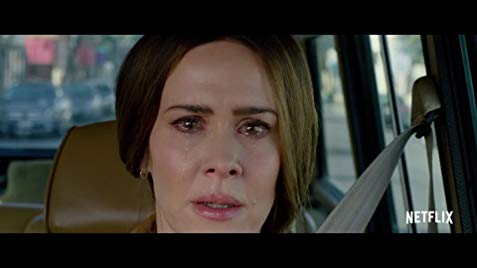 The ego is commonly misunderstood as having a big head or a false sense of pride; in actuality, the ego is the false self. In Christianity, the ego is represented by the devil (whom the ego created so that it has someone else to blame). When Jesus wandered into the wilderness for forty days and forty nights, it was his ego (the devil) who was tempting him. “If you’re the son of God, why don’t you just jump off this cliff?” or “Go ahead and use your powers to turn these stones into bread.” Jesus refers to this voice as Satan, which is Latin for “adversary.” The Seven Deadly Sins (greed, lust, wrath, gluttony, vanity, jealousy, and sloth) are the lies that we tell ourselves. Each of these sins and all of these combined create demons. These demons we keep in our “inner” world (as opposed to our “outer” world, the material plane in which we all interact).
The ego is commonly misunderstood as having a big head or a false sense of pride; in actuality, the ego is the false self. In Christianity, the ego is represented by the devil (whom the ego created so that it has someone else to blame). When Jesus wandered into the wilderness for forty days and forty nights, it was his ego (the devil) who was tempting him. “If you’re the son of God, why don’t you just jump off this cliff?” or “Go ahead and use your powers to turn these stones into bread.” Jesus refers to this voice as Satan, which is Latin for “adversary.” The Seven Deadly Sins (greed, lust, wrath, gluttony, vanity, jealousy, and sloth) are the lies that we tell ourselves. Each of these sins and all of these combined create demons. These demons we keep in our “inner” world (as opposed to our “outer” world, the material plane in which we all interact).
WHAT DOES THIS HAVE TO DO WITH “BIRD BOX”?
Hold on, I’m getting to that. When the veil is lifted, the “inner” world and the “outer” world become one. In actuality, they are already one, but most people don’t understand this esoteric way of seeing the world and so they believe they are “inside” their body (caught in the ego’s world). When Lucifer was cast down to Earth from Heaven, he was entrapped in the gross material plane and forced to take on form. When the veil that separates the “inner” world and the “outer” world is lifted, all of our misdeeds (our demons which we have not faced) are released into the “outer” world (manifested). So, people spend most of their lives lying to themselves, convincing themselves that “everything is OK” because it’s easier to live in the darkness than it is to face the light. After all, ignorance is bliss. Psychologically speaking, our repressed thoughts and memories go to the subconscious (the “id”), and don’t actually disappear. “Out of sight, out of mind” is the way most people get through their lives… that is, until the day of Judgment. We are faced with what we already know but have pretended to forget (our demons).
At the beginning of the film, Malorie (Sandra Bullock) is trying to come to terms with the fact that she’s pregnant. She’s clearly a selfish or self-centered person who is not ready to care for someone other than herself and the thought of having someone completely dependent on her is not in her grand vision for herself. She’s somewhat complex in that she knows right from wrong morally but her life is about to be turned upside-down when she becomes a parent. She’s our protagonist and at times it becomes difficult to sympathize with her, which makes for a bit of a boring second act (but we’ll get to that). 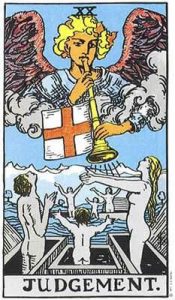
Douglas (played by John Malkovich) is someone who wears his heart on his sleeve. He doesn’t care if people love him or hate him. He has strong opinions about everything and he lets you know it. He’s suing his neighbors because he doesn’t want to look at their renovations and yet his ego is not so overpowering that he is unable to be in the same room with said neighbor. This makes for an interesting dynamic between he and Malorie, resulting in a genuinely sentimental moment where they clash in the kitchen. There is a brief moment where Douglas wears a smirk and Malorie almost reciprocates if not for her own strong beliefs. More on this in a minute…
THE DEMONS
The only time in this film that the demons are almost explained comes from Charlie (Lil Rel Howery), who attempts to throw some logic into the film. For a quick second it seems as though the makers of the film are going to reveal to us exactly what is happening, but Charlie is quickly denounced because he lacks a formal degree in theology. This shows us that the filmmakers knew what they were doing but they obviously wanted to keep the demons as vague as possible. Charlie’s ego is shattered in this scene and he tries to explain that he’s writing a book (later, Malorie will try to inflate his ego and convince him to go to the grocery store by saying it will be good research for his book).
This film is full of devices. The first is the titular device, the bird box, which is our MacGuffin (imagine if “Pulp Fiction” was called “Magic Briefcase”). The second, blaring device is the ambiguity of the demons. Most of the time when a character looks at the demons, they are located behind the camera (in the fourth wall). This adds an extra dimension to them which does not exist within the realm of the film. Some directors, such as Kubrick, have been known to break the fourth wall in order to instill a sense of chaos or to disorient the audience. Most viewers have no clue about the fourth wall or any of the laws that govern filmmaking but subconsciously they sense when something is awry.
In cinema, when the threat that plagues the characters is seen by the characters but not by the audience, it leaves any frightful form up to the audience’s imagination. Take the xenomorph from “Alien” or the shark in “Jaws”, both of which are scarce throughout the film. It’s the sense that something is lurking in the dark or under the water that builds suspense. However, this works when we know what the threat actually looks like. The makers of “Bird Box” decided to follow Hitchcock’s approach to suspense; promise the audience that you will show the threat and then never show it. This, however, did not work for me and the suspense in the film just fell flat. Back to the explanation…
…in movies, an aerial or “bird’s eye” view typically gives us God’s perspective on things. When Malorie and the two children are on the boat in the river, for example, the aerial view gives us a look at the vast expanse surrounding them and at the insignificance of mankind’s place in the world. Yet, we’re much more important than this modest overview, but let me finish with the demon breakdown…
The characters throughout the film wear blindfolds when they “go outside”, but the demons are incapable of entering enclosures which do not have a clear view of the outside world. The buildings represent our physical bodies, and now that the demons are loose, they are outside. Now they are “real”, though we’ve made them real by suppressing them and in many cases, by feeding them with the lies we tell ourselves and with our misdeeds in the outside world. Why don’t the characters just close their eyes instead of wearing blindfolds? Not everything is a metaphor, this is probably just because film is a visual medium and people walking around the entire movie with their eyes closed would look dumber than the blindfolds.
There seem to be two types of people in the world of “Bird Box”; those who see the demons and immediately kill themselves (because they cannot live, even for a second, with their own misdeeds), and those who see the demons and get taken. The latter are attempting to conform everyone in the world to their view. Imagine for a second what that would be like… it would be Hell on Earth. Those who resist are forced to continue battling with their inner turmoil and that is what Sandra Bullock’s character is all about.
SYMBOLISM
Perhaps there is a third type of person we didn’t get the chance to see. Maybe a monk or some other spiritual adept who is safe to walk around with their eyes open. Though that would give too much away and take away from the fun.
When the characters are held up in the house, they let in Olympia (played by Danielle Macdonald). Not only is Olympia a Greek reference to Mount Olympus, the home of the gods, but Olympia is also the mirror opposite of Malorie. She is pregnant, she lived a spoiled life and she cannot fend for herself. However, she has a deep love for her unborn child. Complete 180 from Malorie who is more than capable of taking care of herself but not for her child. This mirroring is seen perfectly when both women suddenly give birth at the exact same time, despite having different due dates. Again, we see the element of a higher power at work. Olympia is something to be obtained by our protagonist, the peak of the mountain; Atonement for her sins.
The children being born become the proverbial Adam and Eve. While they are on the river, for all Malorie knows, they are the only people left alive on Earth. She is assuming that they are moving towards salvation but this is a glimmer of hope and not a certainty. She has refused to give names to the children, instead calling them “boy” and “girl”. Some will say that this is because she doesn’t want to become emotionally attached, which is true on a surface level. However, if it were only Malorie, boy and girl left alive, the children still have the chance to repopulate and continue the human race. Malorie is avoiding polluting them with any sense of the world prior to the Apocalypse (which is seen when she gets mad at Tom, played by Trevante Rhodes, for telling the kids a bedtime story). When Adam and Eve were in the Garden of Eden, the Lord puts Adam to sleep and tells him to name each animal. When we name something, we make it real. We also separate it from everything else.
When the characters go into the grocery store, Malorie is overwhelmed with compassion and decides to save the birds. The birds represent the moment when the scales tip for our protagonist, as she is starting to care now about others. Putting the birds in a box is not just a way to warn our heroes, like a canary in a mine, but also a way for Malorie’s good intentions to remain safe throughout the journey. In Greek mythology, when Pandora opens the box, all of the evils, death and sickness are unleashed upon the world. The box closes and the only thing left in it is hope.
Malorie’s karma is cleansed throughout the film. While she is making a desperate attempt for self preservation, she falls in love with Tom. He teaches her to be human and keeps her ego in check. She’s still not very likable, but at least she’s looking out for the children. There is a moment on the boat where she and the kids are under the blanket and she has to choose who will look out for the rapids. She chooses instead to go the whole thing blindly, on faith alone. After all, hope is a boat with a hole in it but faith is knowing how to swim. Had she chosen to have the girl look, she would have manifested another great demon of her own which probably would have consumed her before reaching salvation. The blind man over the phone asked (prior to her boat trip) if she had any children with her. When Tom responds “yes”, the blind man says that it is because “someone will have to look” when they come to the rapids. The rapids are the true test of character. Would she sacrifice an innocent life to save her own and the life of her own child? Who is she to judge?
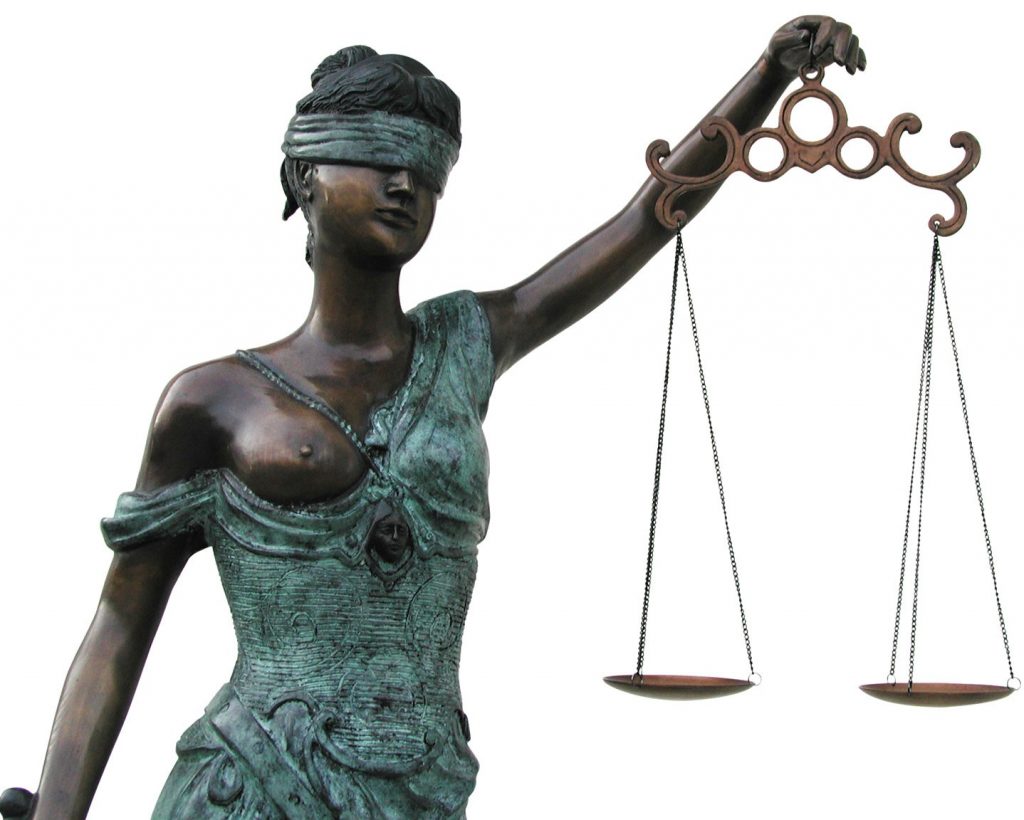 Keep in mind that Justice is blind. When the boat finally arrives, Malorie and the children are now wandering blindly in the wilderness. She gives them instruction to follow the sound of the birds. In ancient Greece, those who spoke with the birds were the enlightened minds (such as Socrates). These are all esoteric teachings. Malorie gets separated and she hears the voice of Tom, who is recently departed. I was not a fan of how Tom died; being a soldier, I would have liked to have seen him stay in the house and fire from cover. Running outside against multiple enemies while wearing a blindfold just seemed silly. Malorie obviously feels guilty for Tom’s death. This is her last inner demon to face and her shame is overcome by her sense of motherly instinct; she can’t be consumed by self pity when she knows her children need protecting. She finds the kids, takes them to the school for the blind and they’re all saved. Presumably afterwards they will find a way to combat the demons. The children have an advantage to the blind people in that they can see (in the land of the blind, the one-eyed man is king); the blind people have an advantage in that they are not taken in by the visual ambiguity of the film’s antagonists. Salvation has been reached, lessons have been learned and everyone across America began to lose their minds.
Keep in mind that Justice is blind. When the boat finally arrives, Malorie and the children are now wandering blindly in the wilderness. She gives them instruction to follow the sound of the birds. In ancient Greece, those who spoke with the birds were the enlightened minds (such as Socrates). These are all esoteric teachings. Malorie gets separated and she hears the voice of Tom, who is recently departed. I was not a fan of how Tom died; being a soldier, I would have liked to have seen him stay in the house and fire from cover. Running outside against multiple enemies while wearing a blindfold just seemed silly. Malorie obviously feels guilty for Tom’s death. This is her last inner demon to face and her shame is overcome by her sense of motherly instinct; she can’t be consumed by self pity when she knows her children need protecting. She finds the kids, takes them to the school for the blind and they’re all saved. Presumably afterwards they will find a way to combat the demons. The children have an advantage to the blind people in that they can see (in the land of the blind, the one-eyed man is king); the blind people have an advantage in that they are not taken in by the visual ambiguity of the film’s antagonists. Salvation has been reached, lessons have been learned and everyone across America began to lose their minds.
WHY?
“Bird Box” is full of esoteric teachings, yet the filmmakers decided to make this film more broadly appealing than, say, Guy Ritchie’s “Revolver” which was a masterful explanation of the teachings. “Revolver” died a quiet death as it went over the audience’s heads and was digested by only Five Percent of the population. Hollywood tries not to make the same mistake twice and so the makers of “Bird Box” packaged deep, esoteric teachings inside an exoteric box. We know this because Charlie briefly began mentioning it but he was silenced by the other characters. The esoteric/exoteric metaphor in which something highly priced is packaged inside something much more affordable to the general public is obviously a winning formula which has people discussing the deeper meanings of the film, though in mass confusion and excitement. For me, the film’s promise died with John Malkovich’s character. It didn’t take enough risks, it left too many open ends and it did not deliver on the entertainment value that I was seeking. However, people are talking about it and to that end it succeeded.
If you want to watch a highly metaphorical masterpiece for comparison, check out Darren Aronofsky’s “Mother”, and if you are looking for a highly entertaining horror film that is also available on Netflix, check out “The Void”.
Tweet
